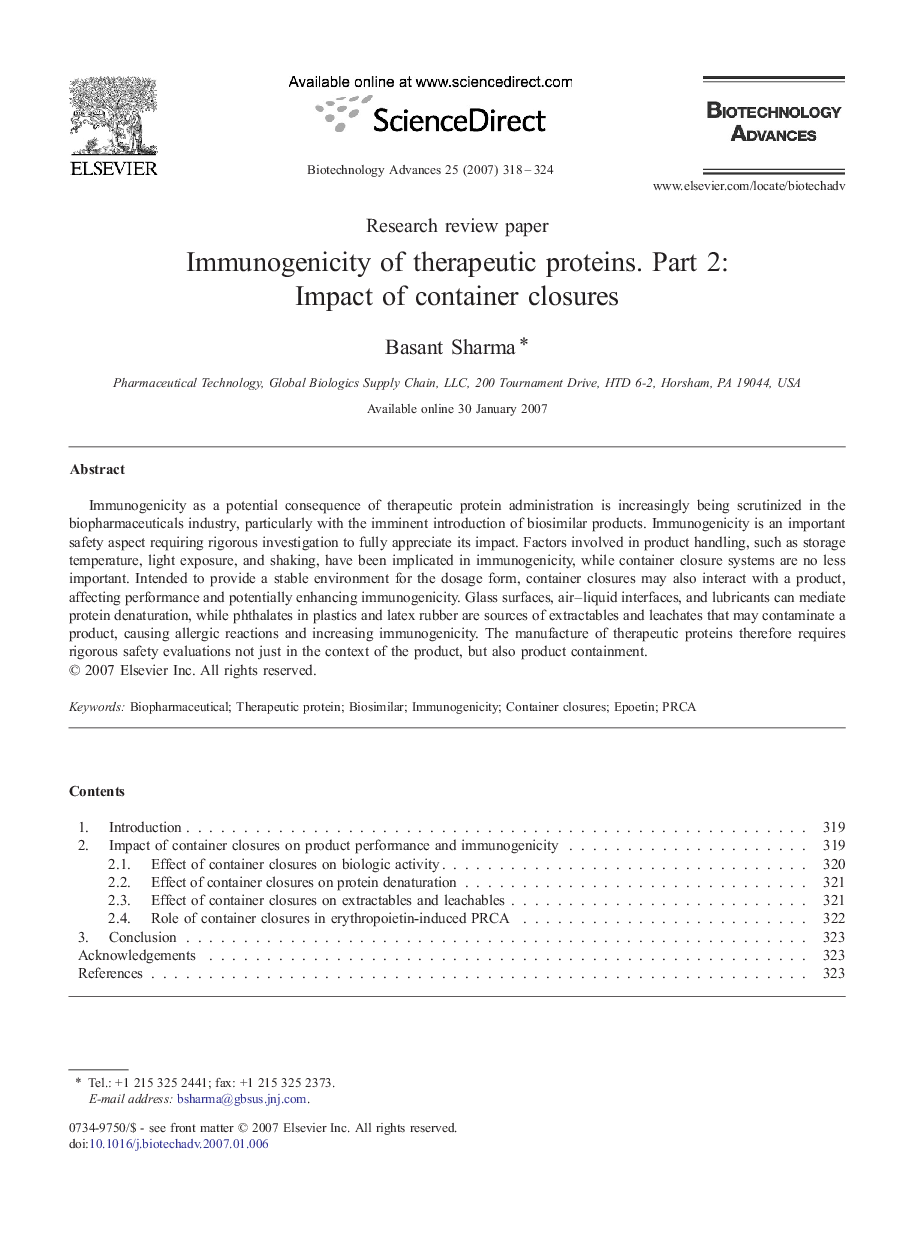| Article ID | Journal | Published Year | Pages | File Type |
|---|---|---|---|---|
| 14840 | Biotechnology Advances | 2007 | 7 Pages |
Immunogenicity as a potential consequence of therapeutic protein administration is increasingly being scrutinized in the biopharmaceuticals industry, particularly with the imminent introduction of biosimilar products. Immunogenicity is an important safety aspect requiring rigorous investigation to fully appreciate its impact. Factors involved in product handling, such as storage temperature, light exposure, and shaking, have been implicated in immunogenicity, while container closure systems are no less important. Intended to provide a stable environment for the dosage form, container closures may also interact with a product, affecting performance and potentially enhancing immunogenicity. Glass surfaces, air–liquid interfaces, and lubricants can mediate protein denaturation, while phthalates in plastics and latex rubber are sources of extractables and leachates that may contaminate a product, causing allergic reactions and increasing immunogenicity. The manufacture of therapeutic proteins therefore requires rigorous safety evaluations not just in the context of the product, but also product containment.
